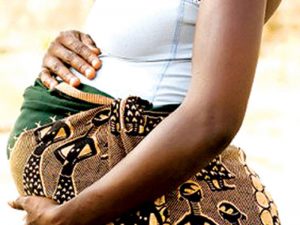Reducing Maternal Deaths In Nigeria

In Nigeria, 9.2 million girls and women become pregnant each year. This is supposed to be a joyous occasion. However, for some families, it is a time of heartache. Maternal and child health is important in Nigeria. In this article, we will determine the challenges of providing maternal and childcare health in Nigeria.
There are 59, 000 women in Nigeria who die annually in childbirth. These deaths account for 14% of the global death totals. The highest maternal deaths occur in India. Nigeria has the second-highest rate. These are some of the problems in Nigeria with maternal and childcare health.
Nigeria Statistics in Maternal Deaths
- 59,000 women in Nigeria die from maternal complications
- Nigeria has the highest maternal death rates in Africa
- Nigeria maternal death rate accounts for 14% of global maternal deaths
- A Nigerian woman dies every 13 minutes because of pregnancy complications
- There are 50 women daily who will have lifelong health problems after pregnancy
- Most of these deaths are preventable
Although maternal deaths have decreased worldwide, the pace in Nigeria has been much slower.
factors Affecting Maternal and Child Health in Nigeria
The most common cause of maternal death in Nigeria is severe bleeding. This bleeding usually occurs immediately after delivery. Severe bleeding accounts for 23% of all deaths.
Sepsis accounts for 17% of all deaths. Other causes are:
- Infection
- Unsafe abortion
- Eclampsia
- Obstructed labor
- Malaria
- Anemia
Severe Bleeding
When a person is severely bleeding, a cascade of events starts to happen. Severe bleeding can cause death because the volume of blood is low in the body.
Therefore, the heart cannot get the profusion that is needed. Also, the heart needs oxygen and if there is no blood to carry oxygen, the heart muscle will die. When the blood volume is low, the blood pressure is low. When the blood pressure is low, the organs have problems profusing.
Sepsis/Infection
Sepsis is the way the body responds to a bacterial invasion. Sepsis can be life-threatening. Normally, the body’s immune system kicks in and fights the infection.
With sepsis, the body can no longer compensate. If sepsis progresses to septic shock, then the blood pressure will drop, the temperature will rise. This cascade of events can cause cardiogenic shock.
The reason why pregnant women are predisposed to infection is that pregnancy changes the body physiologically and it affects the immune system. Pregnant women are most susceptible to urinary or genital infections.
Unsafe Abortion
The only time a woman can have an abortion in Nigeria is when the mother’s life is in danger. Therefore, many times abortions are done under unsafe and non-sterile conditions.
Unsafe abortions are one of the main reasons women have a high maternal death rate in Africa. According to the Guttmacher Institute, more than 3,000 women die each year as a result of a botched abortion.
When a woman has an unsafe abortion, she is susceptible to all kinds of problems such as :
- Retained pregnancy tissue
- Infection
- Hemorrhage
- Anemia
- Perforation of the uterus
- Damage to the uterus and bowel
Preeclampsia
Preeclampsia is a serious disorder that happens in some pregnancies. Preeclampsia is a major cause of maternal mortality and morbidity in pregnant women. Preeclampsia also causes preterm birth, perinatal death, and small birth weight.
The only treatment for severe eclampsia that is curable is delivery. Overall, 10-15% of maternal deaths are directly associated with pre-eclampsia.
Major Risk Factors for Pre-eclampsia
- Kidney disease
- Previous pre-eclampsia
- High blood pressure
- Diabetes mellitus
- Obesity
- Lupus
- History of family heart disease
Obstructed Labor
Obstructed labor is when the child is unable to exit the pelvis because the birth canal is physically blocked. These complications are preventable.
In Africa, the incidence of obstructed labor is 12%. Of these mothers, 61% did not have any prenatal care. The most common causes of obstructed labor were the head of the baby was bigger than the pelvis and malpresentation. Both of these issues can be prevented with proper prenatal care.
Malaria
Malaria is a parasitic infection transmitted by mosquitoes. Malaria is devastating to Africa. Worldwide malaria kills almost one million people annually. Pregnant women and children who already have decreased immunity, have the highest rates of mortality and morbidity.
Pregnant women with malaria have more severe symptoms of malaria. Pregnant women with malaria have the following mortalities:
- Higher rates of miscarriage
- Intrauterine death
- Premature delivery
- Low birth weights
- Neonatal death
According to the World Health Organization, malaria in pregnancy also contributes to a higher rate of perinatal morbidity and morbidity.
It is estimated that 25% of pregnant women are infected with malaria in areas endemic for malaria.
Maternal Mortality
The causes and consequences of unwanted pregnancies need to be addressed.
It is estimated that 33% of Nigerian women have an unwanted pregnancy. Birth control in Nigeria is low most likely due to low supplies of birth control devices.
Only 8% of Nigerian women have access to modern birth control methods such as implants, IUD, diaphragm, and male condoms.
What Can the Nigerian Government do to Decrease Maternal Deaths?
- The Nigerian government should subsidize the full range of contraceptive services and supplies.
- If abortion is going to be legal, the government should provide Nigerian doctors with better training on safe abortions.
- The Nigerian government should promote the number of antenatal clinic doctors and encourage women to utilized skilled birth health care providers in the state government-owned health facilities. These are the healthcare challenges in Nigeria. The distribution of healthcare facilities are uneven.
Nursing Implications and Considerations
There is so much that the nursing profession can do to decrease maternal deaths.
- Universities and medical schools must take the lead to initiate programs to help reduce unintended pregnancies
- Nurses can take the initiatives to teach about pregnancy prevention and choices if birth control
- Nursing organizations should lobby the government to subsidize a full range of birth control methods.
- Nurses should offer education to men and women about safe sex and the use of birth control.
- Nurse organizations can help prevent pregnancy among teenagers by teaching about family life education.
- Nurses should take a role in teaching pregnant women some important neglected issues around childbirth- such as weight control, glucose control, and prevention of infection.
Bottom Line
Maternal deaths in Nigeria are devastating. Nigeria has the highest rate of maternal deaths in all of Africa. Although Nigeria has these challenges, Nigeria has the ability to reduce these maternal deaths.
The Nigerian government has a big role to play in reducing maternal deaths. The government has the ability to make laws and to provide funding to health organizations. Health care providers such as nurses and doctors have a role in educating pregnant women and their partners.
With these listed interventions, the maternal death rate in Nigeria can be reduced.
References:
https://www.ncbi.nlm.nih.gov/pmc/articles/PMC6447322/
https://www.ncbi.nlm.nih.gov/pmc/articles/PMC6026429/
Phyllis Robinson MSN, RN is a Registered Nurse of 27 years. Phyllis is passionate about the prevention and healing of heart disease using traditional and alternative methods. She has experience in emergency room, telemetry, infusion, and critical care. Phyllis currently practices in an intensive care unit.









